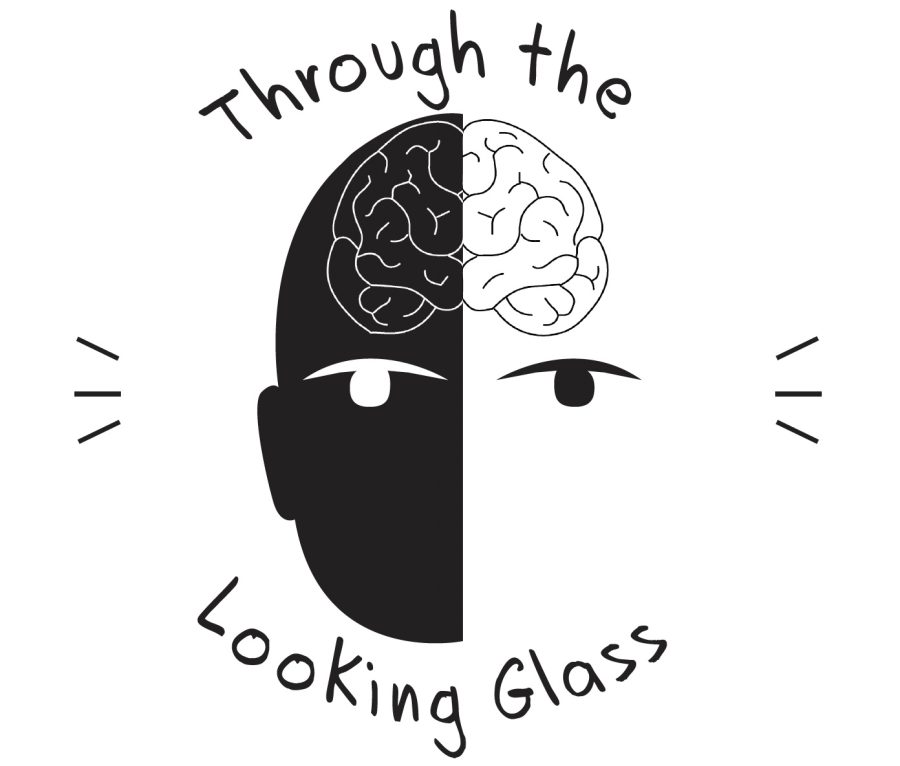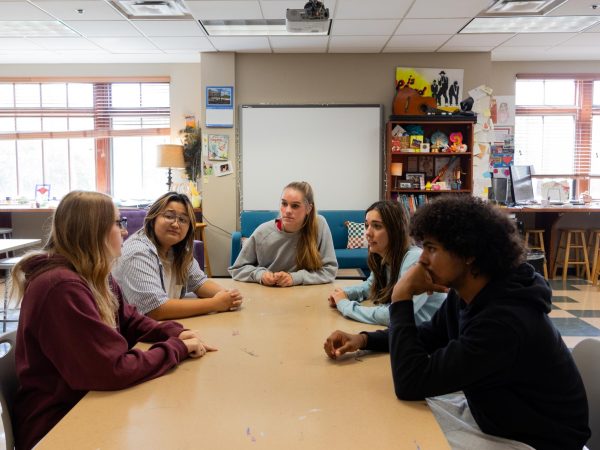Through the Looking Glass
How does neurodiversity affect our school’s population?
Photo: Trinity Cannon
Neurodiversity: what is it? The Cleveland Clinic defines neurodiversity as “people whose brains develop or work differently.” The clinic also states that the term encompasses disorders such as Attention Deficient Hyperactive Disorder (ADHD), Dyslexia, Obsessive Compulsive Disorder (OCD), Autism Spectrum Disorder (ASD), and more.
Upper School World History teacher Seth Johnson is a member of the St. George’s faculty who identifies as neurodiverse, and he feels that neurodivergence is unique for everyone.
“[Neurodiversity is] the various and unique ways we as individuals have our own mental patterns on things … coming from different backgrounds, with those strengths and weaknesses,” Mr. Johnson said.
Neurological disorders affect all aspects of life, from thoughts to actions. Effects from a neurological disorder can be especially challenging within the school setting.
Sophomore Mary Frances Forbes shared her observations about the treatment of neurodivergent students, specifically autistic students.
“The treatment of [neurodiverse] people… that I have observed at the school has been a very difficult thing to witness. It’s been really rough with too many of the students,” Forbes said.
By highlighting neurodiverse experiences at our school, we can raise awareness and sympathy. This is important because the culture surrounding mental health disorders is heavily stigmatized. Unfortunately, stigmatization tends to lead to misconceptions.
Director of Upper School Learning Services Dr. Brenda Monk added that people misunderstand the behavior of neurodivergent individuals, especially when they are experiencing what is known as overstimulation. According to the Oxford Dictionary, overstimulation is when an individual is stimulated psychologically or mentally to an excessive degree.
“Their behavior is a reaction to the overload. They are not being disrespectful and neither are they trying to be disruptive in a classroom. They’re simply coping with the situation that they’re in,” Dr. Monk said.
Misconceptions can also come in the form of using terms incorrectly or misinterpreting aspects of disorders. Mr. Johnson, who has OCD and ADD, addressed common misconceptions surrounding these disorders.
“I think a lot of times people think that [ADD] means that you’re always like bouncing off the walls… and in fact, you can be a very quiet still person and have trouble focusing on reading or gathering comprehension,” said Mr. Johnson.
Another disorder that was frequently brought up was OCD. A common misconception is that OCD revolves around being orderly and neat. While that is true in some cases, the disorder can be much more complex than neatness. Some habits that were mentioned by HelpGuide.org were excessively checking things (locks, ovens, etc) and “doubters,” who fear that something terrible will happen if things are not done just right. These actions can be bothersome to these individuals and are beyond impulsive thoughts.
Molly Gorham, who has OCD, shares some insight into her experience with the condition.
“I know a lot of people will say ‘Oh I have to organize this like I have OCD or something,’” she said. “That can be really frustrating because I’m sure [that] maybe you do have an obsessive compulsion to organize, but it might not be the disorder [since] it’s a lot more than organizing.”
Gorham also discussed how other people have watered down a common struggle with OCD.
“When someone describes lighthearted thoughts as intrusive thoughts in comparison to impulsive thoughts, it downplays the effect they can have on people physically and mentally,” Gorham said.
When asked about our community’s resources and support, other than some misconceptions, there was an overall positive response.
However, there are ways to fight back against these misconceptions. Forbes suggested a way the school can do that.
“I think providing more figures who are neurodivergent… would just combat those misconceptions.”
Eighth grade history teacher Traci Erlandson manages to turn her OCD and ADD into a positive. In her eyes, it can even help with student-teacher connections.
“[It] helps me to be able to relate to [my students] on a more personal level and help them see that they don’t, they can’t, and they shouldn’t be using it as a crutch,” Ms. Erlandson said.
On the topic of addressing neurodivergence, she also adds, “I feel like we could be a little bit more thoughtful on how we approach it through how we do character-building lessons… just talking about different learning styles.”
Dr. Monk also encourages that we see neurodivergence as more than a limitation.
“Sometimes we automatically put labels on them, and start talking about the things they can’t do as opposed to looking at it as being a positive and accepting the fact that all brains are different.”
Every person has their struggles, but those who identify as neurodiverse may have theirs amplified in a setting where disorders are easily misunderstood and not accounted for. It is more valuable to place effort into working together to create an environment where everyone has the chance to grow and be supported.
What can we do to support the neurodiverse community at our campus? Dr. Monk presents a classroom solution.
“[The classroom] becomes a universal design, so rather than labeling students as neurodiverse, we just take a classroom and make sure that the classroom fits all of the different learning styles and learning needs of students,” Dr. Monk said.
Mr. Johnson suggests the school do this by “making students and faculty … aware [that]we have students with these particular situations in our groups.”
Ms. Erlandson added that we should address it directly with students.
“It could be approached in an advisory capacity, and then teachers need to be aware of who’s dealing with what and make sure that they’re observant about if… ridicule or targeting is happening so we can make sure to stop it, and then have a conversation with whoever the kid is,” she said.
Gorham adds that being supportive and respectful of others is highly important.
“It’s just important to always be supportive of everyone around you, and treat everyone with kindness and respect.”
Neurodiversity is an extremely complex issue, but there is no need to make a big deal out of someone’s condition. In Gorham’s words, “[making] a big deal out of it or [drawing] more attention because that can make it a lot worse.”
It is important to understand the background of neurodivergent people and their specific needs, and that in itself is a great step towards making a better and more supportive community.







